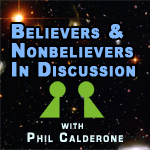There is a right and wrong way to evaluate a piece of information. When people use different methods a populace ends up holding different sets of “facts” and beliefs. Regardless of ideological loyalties we all want to be on the side of truth. How we get there is open to debate and we must be wary of manipulative methods.
The correct way to judge new information is analogous to the American judicial system’s innocent until proven guilty—begin with no opinion and consider all end points to be possible. We then evaluate evidence and concepts to thin the herd, ultimately ending up with a most-likely conclusion. This becomes our belief coupled with a degree of certainty or doubt.
To be complete, we are not limited to physical explanations reachable by experimental evidence. Supernatural possibilities may be considered though the former has much stronger purchase, as we will see.
Presupposition
-A thing tacitly assumed beforehand at the beginning of a line of argument or course of action.
Presupposition is similar to supernatural explanation except that it is placed at the start of an argument, a prerequisite premise that is not to be questioned. It is a speculative non-zero starting position. This muddles the analysis of data because its preemptive assertion may have no connection to likelihood of that data being true. Worse, it is typically inserted to bias the upcoming evaluation to a desired conclusion.
Consider the term margin of error. When something is evaluated there is a degree of uncertainty of it being correct or not. The scale of this is margin of error. We see this commonly on public opinion polls. For example, people support a piece of legislation at 60% with a margin of error +/- 5%. The margin represents uncertainty in the accuracy of the poll accounting for elements like people answering honestly, pollsters recording correctly, etc. The ability to calculate this margin is also a factor; when impossible we must concede that an answer is unknowable, at least until better methodology is available.
A presupposition is worse. It is presented as unquestionable, presumed to be true, shielded from testing by definition. It is a concept with a margin of correctness of unknown scale, presented as if it had zero error. Placing such a prerequisite before an evaluation of data makes the evaluation useless, the degree of confidence in a decision unknowable.
To get less abstract consider the big question–does God exist?
To a presuppositionalist this is asserted as a given, so yes, God does exist. The proper unbiased position is that we don’t know, a null position to be followed by the judgment of evidence and supporting ideas.
The immediate problem with the presupposition is that the question stops on step one, an answer decreed without evaluation. Presupposition is typically used when the evidential argument has been lost. It is an extra factor used by one side only, supposedly immune to attack. End of argument, X is true because it is. It can also be applied as a preference bias, X being more likely given the presupposition as a supporting premise. In the world of conclusion, this is the weakest position possible.
Back to our question, the existence of God. First let’s examine the possibility of a physical entity. Evidence sited over the years has decreased significantly, modern explanations having progressively replaced ancient speculations. God of the gaps has been left with few gaps to hide in. We know how tides work, what causes thunder and comets, and even have reasoned insights into how life may have begun. Arguments from complexity (proposed to discredit evolution) fail when one moves from the realm of hypothesis to evidenced explanation. Most items that people still call evidence are miracles (events that break physical laws), anecdotes or hearsay (personal experiences and revelations) or just plain tradition. On balance we are left with a negative result—insufficient physical evidence.
Next, we consider the non-physical possibility, the supernatural. This is limited to thought consideration, the tool of philosophers. Since no experimentation is possible we are limited to inductive reasoning, that is, taking relevant premises and concluding a broader potential explanation. However the conclusion is never proof, it can only be suggested as a possible explanation of truth. The explanation may in fact be false. This is as far as we can go—a conceptual maybe.
Putting these together we have a probably no answer and a slightly possible maybe. We do not have an absolute yes or no. We are left to derive the likelihood, the probability of these two options, the result of which will be our belief.
Drilling down on the physical no, there are probability considerations. We may have missed an experimental yes because of the limits of our current knowledge and experimental ability. This must be judged on a case by case basis—are we testing to determine if humans have three eyes or what came before the Big Bang? Given 21st Century knowledge it’s fair to say that we’re far along on our testing ability, at least for questions less extreme than the origin of the universe. Thus the no answer to a God being physical has a high probability of being correct.
Looking closer at the pro-supernatural maybe let’s assume that some thought concepts are logically valid. For example, some entity more powerful than a human could have the power to manipulate our universe. Others ideas are invalid, such as an anecdotal “I have felt God” or the hearsay of revelation “Someone told me it’s true, a book says that it’s true.” These can be dismissed just as we dismiss them in a court of law—not as being false but of being no better than speculation, prone to source manipulation. Allowing these would be trying to affirm ignorance as fact, like claiming to know what is behind a closed door. One “maybe” speculation is as likely as another; cherry-picking ones preference is invalid.
Defense of presuppositional positions is an art in itself. I’ll leave that exploration to you if you wish to spend long evenings allowing your brain to be twisted into knots, though it is a good exercise in testing your ability to catch logical fallacy. Be prepared for a torrent of circular logic, bent definitions, philosophical manipulations and debate tactics. YouTube has many such discussions. To give one example, a common defense is that one cannot be sure of any knowledge, even logic itself, without God. The arguer pesters the opponent with this presupposition and dominates the conversation, cleverly ignoring the fact that if the anti-presuppositionalist knows nothing by this reasoning, neither does the presuppositionalist. Cue the circus music, round and round.
Presupposition is a ruse, a parlor game to confuse the dialogue and help justify preferred beliefs. It is wanting to know masquerading as what to know, tactic rather than substance, a manufactured tool of a lost argument.



